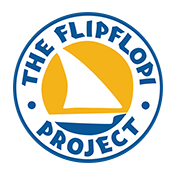East Africa - Let's stand up against plastic pollution!
It’s currently impossible to imagine a hospital functioning without all that disposable plastic that we have become dependent on for survival. It’s also very difficult to imagine how we can possibly survive without food packaging that is all plastic based.
For the majority, even imagining shopping without a plastic bag was unquestionable. But something changed – an awakening; an ability to not only imagine but to act upon.
As members of the East African Community (EAC), we are thankful that some countries – Rwanda, Kenya, Tanzania, and Burundi - have fully enforced the ban on the manufacture of single use plastic (SUP) and plastic carrier bags. Rwanda has taken the lead in the region with a total ban on SUPs this year and Kenya has gazetted a ban on SUPs within protected areas including national parks and beaches also to be effected in 2020.
Yet, there is so much more that must be done. And it has to be done now. We are literally breathing and eating our own waste.
We are calling for all the EAC Member States to reach regional consensus and take a leadership stance by adopting legislation to address single-use plastic and ban the most destructive, useless plastics – those that can’t be recycled and are non-essential to human survival – such as cotton buds, cutlery, disposable cups, and plastic straws.
By implementing bans on these items, and enforcing businesses to stop manufacturing these non-recyclable items, the East African Community can set the lead for the rest of the world to follow.
We call on the leaders of the East African Community (Burundi, Kenya, Rwanda, South Sudan, Tanzania, and Uganda) to:
1. Implement a regional ban on certain single-use plastic items, specifically those that are not essential and are either impossible to recycle or cannot be fully recycled:
- plastic bags, plastic straws, balloons, disposable cutlery
- crisp bags, coffee bags, cereal bags
- plastic toothbrushes, cotton buds, single-use beauty product packaging
2. Provide incentives to businesses to manufacture affordable and environmentally-friendly alternatives to the banned items.
3. Invest in waste management infrastructure, ensuring that products are properly disposed of and given a second-life.
4. Make producers responsible for their waste. Manufacturers of items like packaging, containers, food service products and paper must be held accountable for ensuring their waste does not end up in the environment.
All you have to do is sign this petition and ask as many people in your network to sign. Society demands change and our governments will listen if there are enough of us.
Why should you sign this petition?
Because that is what makes you human. There is no doubt - plastic pollution is one of the biggest catastrophes of our time. In 2050, there will be as much plastic by weight as fish in our oceans. The most durable of materials, it can last forever. It's in the lakes and rivers we survive on for clean water, and the fish and livestock we eat. Time is running out before it ruins our waterways, our children's playgrounds, and the world we depend on for survival.
Because a lot of plastic is difficult or expensive to recycle, only 8% of plastic globally is recycled. The rest is burnt, put into landfills, or dumped into our environment (it is estimated that 8 million tonnes of plastic is dumped into the ocean every year) where it is responsible for:
- blocking drains which leads to flooding,
- compromising marine ecosystems (fish, sea birds etc) which negatively impacts livelihoods in the coastal areas, and
- negatively impacting human health - plastic waste fuels water-borne diseases in urban areas (e.g. typhoid), releases harmful toxins when burnt, and leaches chemicals into food and underground water.
The author of this petition:
The Flipflopi Project stands behind this petition: we built the world’s first and only 9mt sailing boat made entirely from waste plastic, picked up from towns and beaches in Kenya, and covered in 30,000 flip flops! We did it to prove that single-use plastic don’t make sense. We sailed the boat on its first 500km voyage from Kenya to Tanzania and now we will take our message upstream to the second largest freshwater lake in the world and the source of the Nile – Lake Victoria. And we will keep going until we can stop imagining a world without single-use plastic and start living in one.
We do not seek to ban all plastics. Instead, we envision a world without single-use plastics. We also see a world where plastic is produced and consumed responsibly, and where plastic is part of a circular economy - in which waste is eliminated and plastic (and all other materials) can be used and reused continuously.




